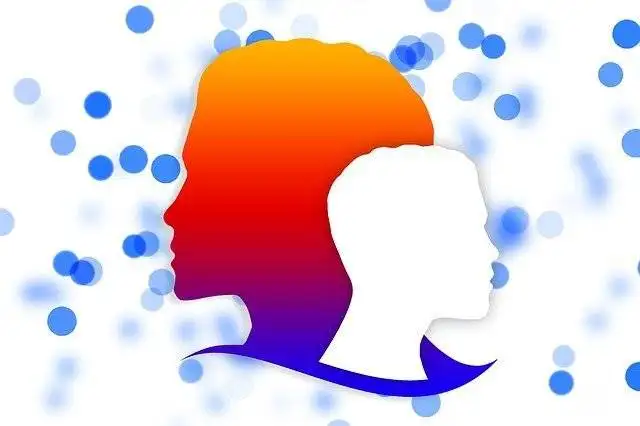Understanding
Dissociation and
the Role of
Counseling in
Healing
Dec 20, 2023 | By: Hope for the Journey

Dissociation is a common mental health issue that affects millions of people worldwide. And the role of therapy in healing is strongly reinforced by research. This article will help you understand more about dissociation, the different types of dissociation, and the role of therapy in healing from trauma.
Dissociation is a phenomenon where the mind disconnects from reality, resulting in feelings of detachment, numbness, and memory loss. Additionally, it can result in lack of awareness and disconnection from mind, body, and/or emotions. It often occurs in response to traumatic events, such as physical or emotional abuse, accidents, or military combat. Many people who suffer from clinically significant dissociation deal with a range of symptoms that can be challenging to manage without professional help. In this blog, we’ll dive deeper into what dissociation is, the common signs, and the role counseling can play in the healing process.
Is Dissociation Bad?
Dissociation is something that happens to all of us every day. A common example is when you’re driving home from work or school or a place you go frequently. You’re listening to the radio or looking at the scenery and your mind wanders. Before you know it, you’re pulling into your house and you don’t remember any specifics about the drive. This type of dissociation is common and not problematic.
Dissociation is also a natural defense mechanism that the mind uses to protect itself from stress, pain and/or overwhelm. Think of it similar to the numbing that your body or a limb might feel during or just after a serious accident. It can take a while before you actually feel pain. Traumatic experiences can cause the same automatic shut down valve that protects you from feeling the pain from that experience.
So, is it bad? Absolutely not. However, when dissociation is happening long after the traumatic event is over and it becomes a long term coping mechanism, it means that a) you have not healed from the traumatic experience(s) and b) you can’t live a truly full, authentic life. Plus, the memories that need healing are likely to try to break through. This often happens in the form of nightmares, intrusive thoughts, chronic pain/illness, and impulsive/destructive behaviors that can wreck havoc on our functioning and relationships. So, long term, dissociation is not generally sustainable.
Are There Different Types of Dissociation?
Yes. Dissociation comes in a spectrum. On the one end is normal dissociation like the example explained above driving home. On the other end, is what we call structural dissociation. Generally, the more overwhelming the stress is to you at the time it occurs and/or the more often it happens, the more intense and complete the dissociation might be. You may or may not be aware you are disconnected. For instance, you might be unaware that you are angry about a situation until you find yourself blowing up unexpectedly at some small trigger (mild dissociation). A more extreme case might involve having large portions of your past that are just…blank (moderate dissociation). An even more extreme case might be having different aspects of yourself that feel completely separate, almost like different people that share your same body.

How Can You Recognize Dissociation?
The experience of dissociation can be terrifying, and it can be tricky to recognize it in oneself or a loved one. Some common signs of dissociation include feeling numb or disconnected from reality, experiencing ‘out of body’ sensations, feeling like time is moving too quickly or slowly, and having trouble recalling significant events. Additionally, many people with dissociation report jarring experiences where a memory or knowledge of something you did suddenly breaks through. If you or someone you know experiences these symptoms, it’s essential to seek professional help.
What is the Role of Counseling in Healing from Trauma With Dissociation?
Counseling can play a significant role in the healing of dissociation. There are numerous types of therapy available, and the right approach will depend on the client’s needs. One of the most effective treatments for dissociation is EMDR. Eye Movement Desensitization and Reprocessing (EMDR) is another technique used to treat dissociation. This therapy involves a series of eye movements that have been shown to reduce the symptoms related to trauma.
Another type of counseling that can be beneficial in treating dissociation is mindfulness-based cognitive therapy. This approach focuses on mindfulness techniques to help the patient stay present in the moment, which can be helpful in reducing symptoms of dissociation. Additionally, people have found significant healing using Internal Family Systems, Sensorimotor and other somatic modalities, as well as Cognitive Behavioral Therapy.
When seeking help for dissociation, you want to ensure your therapist has the training and experience with any of the modalities listed above to help with your dissociation symptoms, as well as the traumatic experiences that caused the dissociation to start. Not just any therapist has these skills. So make sure to ask about the clinician’s training and experience working with trauma and structural dissociation.
In addition to these therapies, there are self-care practices that can help manage symptoms of dissociation. Some effective practices include deep breathing exercises, journaling, and spending time in nature. These self-care practices can be used in combination with professional counseling to promote a more robust healing process.

Conclusion
Dissociation can be a challenging experience to live with. Still, with the right support and professional help, it is possible to heal and manage symptoms successfully. There are various effective therapies available, and it’s essential to find the right approach that works for the patient. If you or someone you know experiences dissociation symptoms, don’t hesitate to seek professional help. Together, we can promote healing and recovery.
You CAN heal from dissociation. If you are needing assistance with this process, reach out to us…we are here to Help.
Our team of caring therapists are ready to help you on your healing journey. Our highly skilled clinicians will welcome you with warmth and understanding. To start therapy with Hope For the Journey, please follow these simple steps:
- Contact Hope for the Journey
- Meet with acaring therapist
- Begin to Feel, Heal & Thrive!
Other Services Offered At Hope For The Journey
Our team is happy to offer a number of services from our Round Rock and Austin therapy offices. Mental health services include therapy for anxiety and depression, domestic violence, sexual assault, PTSD, and EMDR. Our team also provides support for family members of all ages with counseling for teens and young adults, children and tweens, couples, men, and parents/partners. Contact us today to learn more about our team and community involvement!
